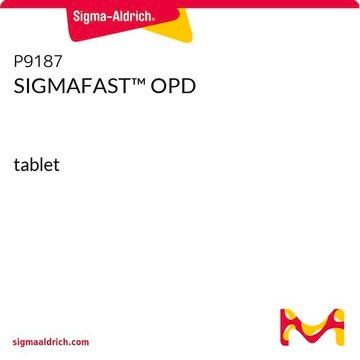S8875
Bicarbonate de sodium
ReagentPlus®, ≥99.5%, powder
Synonyme(s) :
Sodium hydrogen carbonate
About This Item
Produits recommandés
Agence
suitable for EPA 300
Niveau de qualité
Gamme de produits
ReagentPlus®
Pureté
≥99.5%
Forme
powder
pKa (25 °C)
(1) 6.37, (2) 10.25 (carbonic acid)
Densité
2.16 g/mL at 25 °C (lit.)
Chaîne SMILES
[Na+].OC([O-])=O
InChI
1S/CH2O3.Na/c2-1(3)4;/h(H2,2,3,4);/q;+1/p-1
Clé InChI
UIIMBOGNXHQVGW-UHFFFAOYSA-M
Vous recherchez des produits similaires ? Visite Guide de comparaison des produits
Description générale
Application
- To synthesize nitriles from the corresponding aldehydes and hydroxylamine hydrochloride in the presence of sodium sulfate as a co-catalyst.
- To prepare coumarin derivatives via intramolecular Wittig reaction of substituted 2-formylphenyl 2-bromoacetates.
- In the acetylation of primary alcohols and phenols by reacting with acetic anhydride.
Informations légales
Code de la classe de stockage
13 - Non Combustible Solids
Classe de danger pour l'eau (WGK)
WGK 1
Point d'éclair (°F)
Not applicable
Point d'éclair (°C)
Not applicable
Certificats d'analyse (COA)
Recherchez un Certificats d'analyse (COA) en saisissant le numéro de lot du produit. Les numéros de lot figurent sur l'étiquette du produit après les mots "Lot" ou "Batch".
Déjà en possession de ce produit ?
Retrouvez la documentation relative aux produits que vous avez récemment achetés dans la Bibliothèque de documents.
Les clients ont également consulté
Notre équipe de scientifiques dispose d'une expérience dans tous les secteurs de la recherche, notamment en sciences de la vie, science des matériaux, synthèse chimique, chromatographie, analyse et dans de nombreux autres domaines..
Contacter notre Service technique




